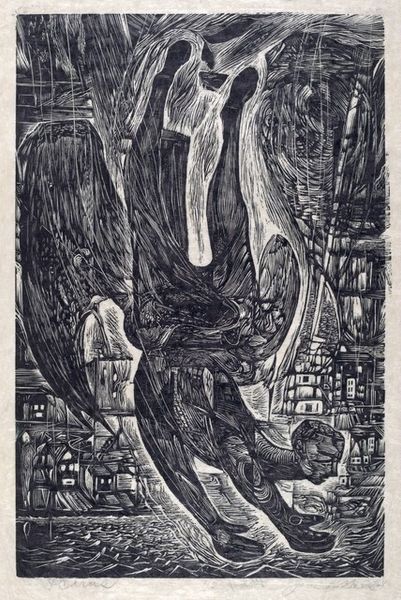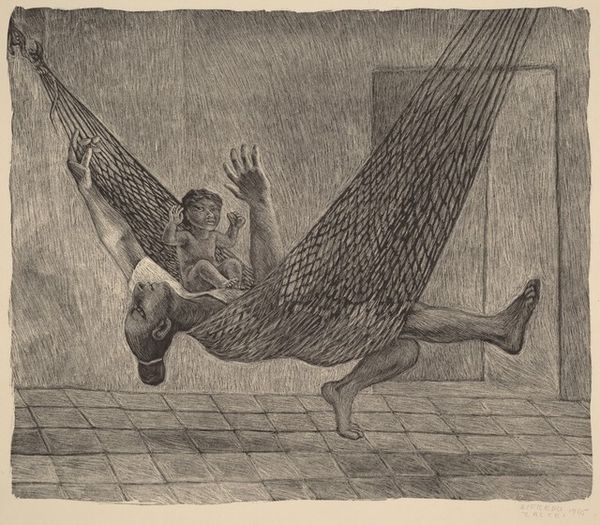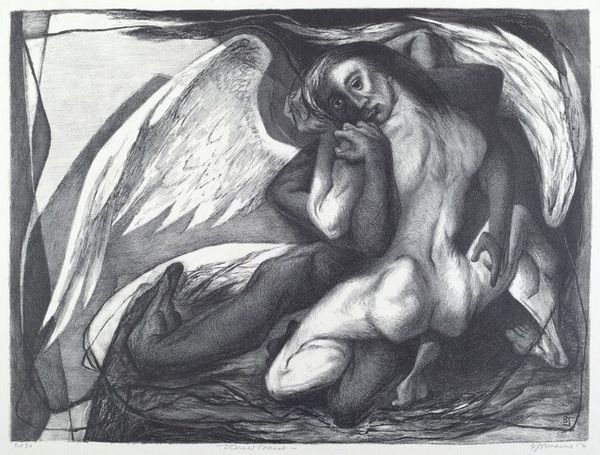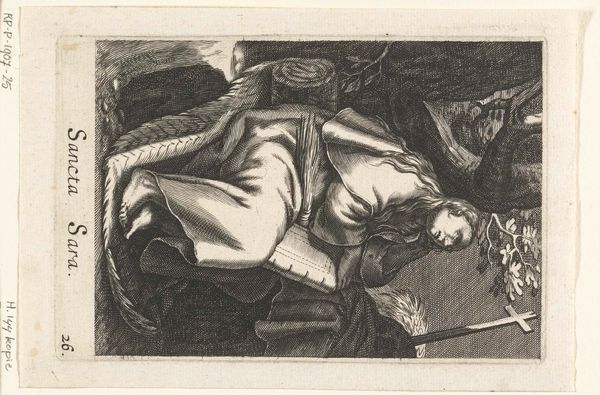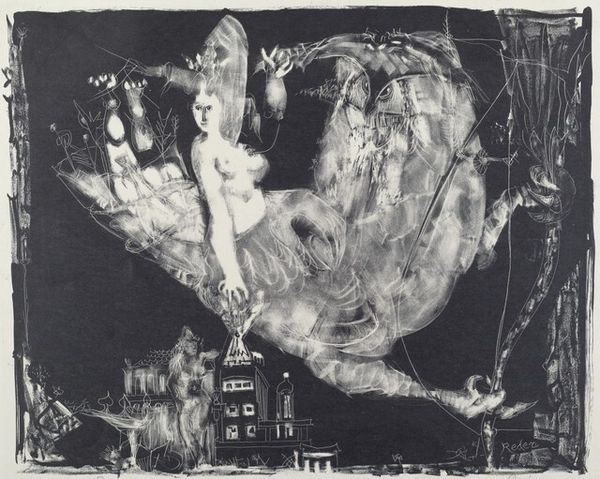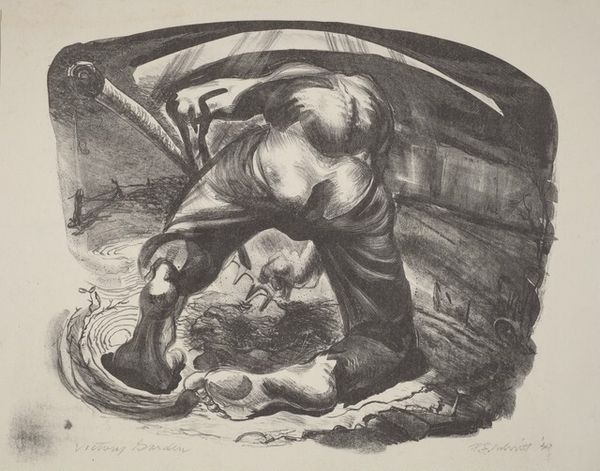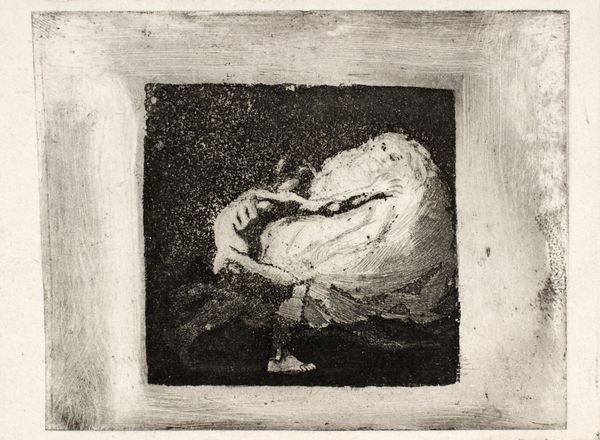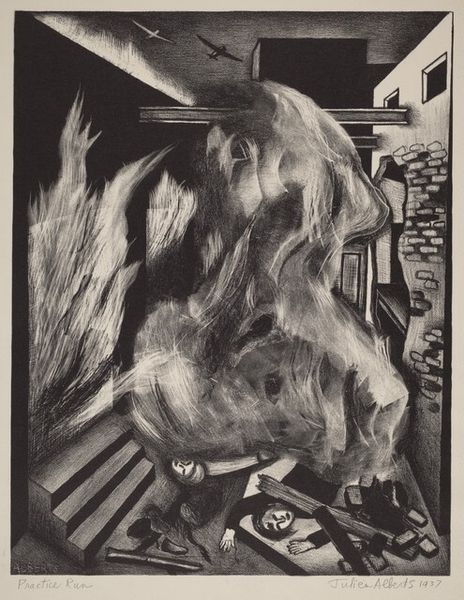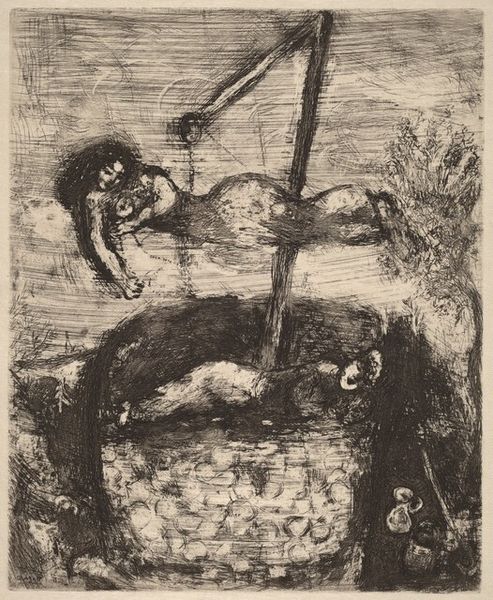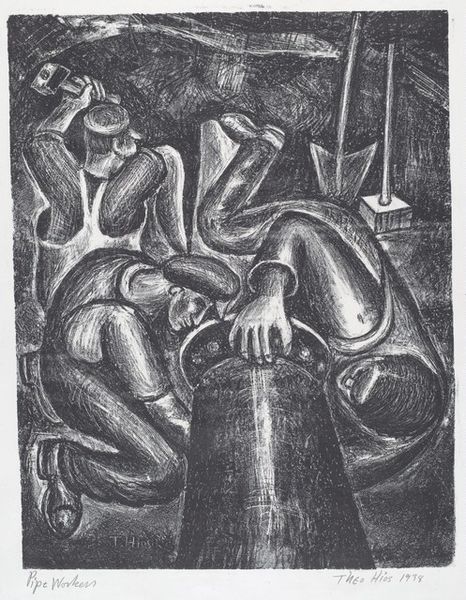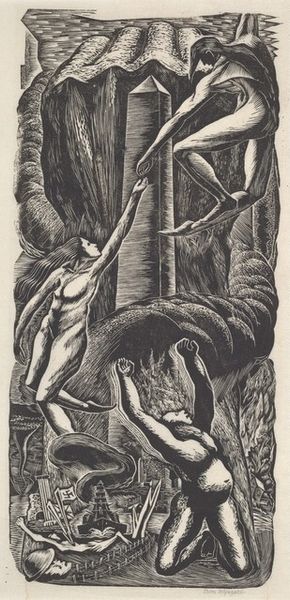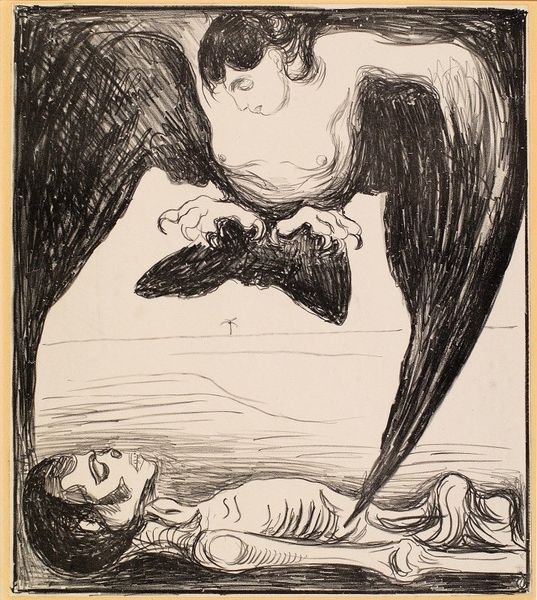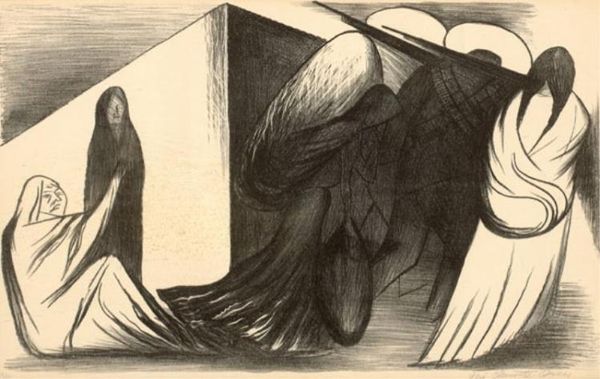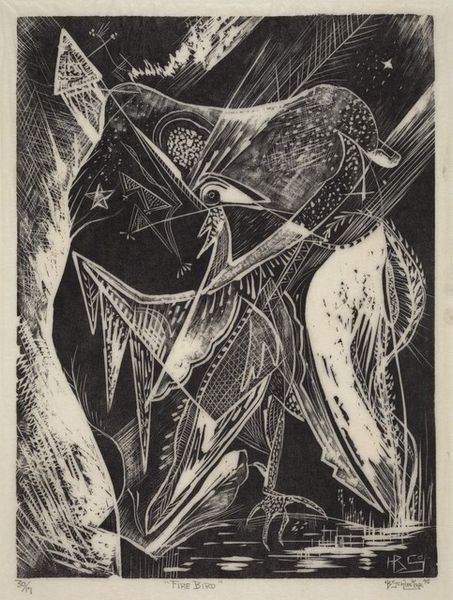
# print
#
pencil sketch
#
charcoal drawing
#
charcoal art
#
portrait reference
#
pencil drawing
#
limited contrast and shading
#
surrealism
#
portrait drawing
#
charcoal
#
graphite
Copyright: National Gallery of Art: CC0 1.0
Benton Spruance created "To Freedom" in 1948 using lithography, a printmaking process dependent on the mutual repulsion of grease and water. The artist likely drew with a grease crayon or tusche wash directly onto a stone or metal plate. Lithography allowed Spruance to achieve a wide range of tonal values, from deep blacks to delicate grays, visible in the contrast between the darkness of the background and the relative lightness of the figure straining to escape. This is achieved through skilled mark-making and chemical etching, a labor-intensive process. The social context of the post-war period, along with issues of labor, politics, and consumption, are subtly embedded in the work through the choice of process. Lithography allowed for the relatively quick reproduction of images, making art more accessible. With this work, Spruance acknowledges the physical and social obstacles to liberty. By considering Spruance’s work in lithography, we can move past traditional boundaries between fine art and craft, and engage with the rich layers of meaning embedded in his work.
Comments
No comments
Be the first to comment and join the conversation on the ultimate creative platform.
